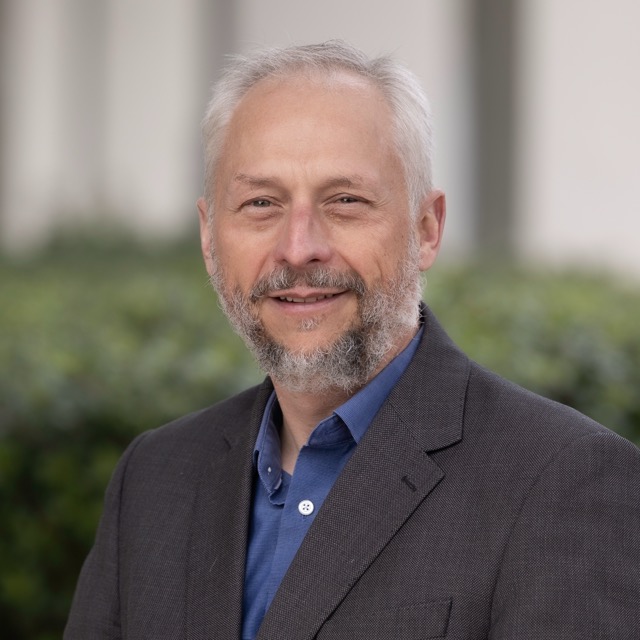
About Vaxart
Our Company
Vaxart is a clinical-stage biotechnology company developing a range of oral recombinant pill vaccines based on our innovative delivery platform.
We have proprietary technology, partnerships to accelerate our development, and an experienced team with deep industry expertise.
Our Team
Vaxart’s team of experienced industry veterans are passionate about transforming global public health and have a successful track record of developing and commercializing healthcare products.
-

Steven Lo
Chief Executive Officer
Mr. Lo is a highly experienced biopharma executive with over 25 years of experience in the healthcare, biotechnology, and pharmaceutical industries, including over 12 years of C-level experience in publicly traded biotech companies.
Prior to Vaxart, Mr. Lo was Chief Executive Officer and a member of the board of directors of Valitor, a private biotech company, from 2022 to 2024. From 2019 to 2022, he was the President, Chief Executive Officer, and member of the board of directors of Zosano Pharma. From 2015 to 2019, he was the Chief Commercial Officer at Puma Biotechnology. At that company, he built and led business development and the worldwide commercialization of the company’s first product. Prior to that, he was Chief Commercial Officer of Corcept Therapeutics, where he established the commercial organization to launch the company’s first product. Earlier in his career, he spent 13 years at Genentech in a variety of leadership roles in commercialization and market access.
Mr. Lo obtained a master’s in Health Administration from the University of Southern California and a B.S. in Microbiology from the University of California, Davis.
-

Sean Tucker, Ph.D.
Senior Vice President and Chief Scientific Officer
Dr. Tucker is the Founder of Vaxart and has served as its Chief Scientific Officer since February 2010. From March 2004 to February 2010, Dr. Tucker served as Vice President of Research and Director of Immunology. He has held numerous scientific and engineering roles at various biotechnology companies.
Dr. Tucker has a BSc. in Chemical Engineering from the University of Washington, an MSc. in Chemical Engineering from the University of California, Berkeley, and a Ph.D. in Immunology from the University of Washington.
-

James F. Cummings, M.D.
Chief Medical Officer
Dr. Cummings is a Board-Certified Infectious Diseases Physician with a twenty-six-year career in the US Army and a proven track record in vaccine, drug, and diagnostics development.
Dr. Cummings served as Director of the Department of Defense’s Global Emerging Infectious Surveillance and Response System (GEIS), with Bio-surveillance Laboratories in 71 countries, the Director of Translational Medicine & Regulated Activities for the Walter Reed Army Institute of Research (WRAIR), and the Consultant to the Surgeon General for all medical research and development.
Before joining Vaxart, Dr. Cummings served as President, Government and Public Health Solutions at ICON GPHS, and Vice-President of Clinical Development and Translational Medicine at Novavax.
Dr. Cummings has a medical degree from Georgetown University School of Medicine.
-

Raymond D. Stapleton, Jr., Ph.D.
Chief Technology Officer
Dr. Stapleton served as Chief Technical Officer and Executive Vice President at Genocea, working to develop next generation personalized immunotherapies in the forms of vaccines and cell therapies. He joined Genocea in January 2021, bringing more than 20 years of industry experience to the company, having led technical, quality, and manufacturing operations at commercial and clinical stage biopharmaceutical companies.
Before that, he served as President and Chief Operating Officer of American Type Culture Collection (ATCC), as well as a member of the Board of Directors of both ATCC and ATCC Global.
Prior to ATCC, Dr. Stapleton worked in senior manufacturing and technical operations roles at Iovance Biotherapeutics, Inc. and Synthetic Biologics, Inc. after spending 15 years in positions of increasing responsibility in Merck and Company’s manufacturing organization.
At Merck, Dr. Stapleton led a complex science, technology, and engineering organization at a manufacturing site responsible for supporting Merck’s $5 billion annual revenue vaccine business.
Dr. Stapleton earned a bachelor’s degree in Biology from Mary Washington College in Fredericksburg, Virginia and received his Ph.D. in Microbial Ecology from the University of Tennessee, Knoxville. He has served as peer reviewer for a half dozen scientific journals, co-authored 17 peer-reviewed manuscripts, and holds multiple patents.
-

Phillip Lee
Chief Financial Officer
Mr. Lee has over 15 years of strategic finance and advisory experience in the biotechnology industry. During his career, he has helped raise over $1 billion of capital and worked on more than $20 billion of M&A transactions, including partnerships, asset acquisitions, mergers, spin-offs, and royalty monetizations.
Prior to Vaxart, Mr. Lee was Chief Financial Officer and Chief Operating Officer at Clover Biopharmaceuticals and Vice President, Finance at 4D Molecular Therapeutics. Mr. Lee began his career as an investment banker and was a founding member of Centerview Partners’ healthcare advisory practice.
Mr. Lee earned dual bachelor’s degrees in Electrical Engineering and Computer Sciences and Business Administration from the University of California, Berkeley.
-

Edward B. Berg
Senior Vice President and General Counsel
Mr. Berg has served in senior legal positions at prominent healthcare companies for most of his more than 30-year career and has represented Fortune 500 and mid-cap companies in biotechnology, pharmaceuticals, and life sciences.
Prior to Vaxart, he served as Vice President, Deputy General Counsel for BioMarin Pharmaceutical Inc. Mr. Berg previously served as Vice President Legal and the head attorney supporting Novartis’ biosimilar / complex generic unit, the BioPharm division of Sandoz US. Mr. Berg’s previous roles include Deputy General Counsel, Pharmaceutical Operations for Sanofi-Aventis U.S. and Sanofi NA Pharmaceuticals, and Senior Corporate Counsel, Research & Development, Bristol-Myers Squibb, Inc. He began his career in healthcare as Senior Attorney / Associate Counsel for Merck & Co, Inc.
Mr. Berg received a B.A. from Washington University in Economics and Political Science and a law degree from the University of Pennsylvania Law School.
-

Laurie Hastings
Senior Vice President of Human Resources
Ms. Hastings is a highly experienced HR executive with over 25 years of experience in both biotech and high-tech industries.
Prior to joining Vaxart, Ms. Hastings was Vice President of People and Culture at Encoded Therapeutics, a private preclinical gene therapy company, from 2022 to 2023. From 2017 to 2022, she was the Vice President of Human Resources at Vifor Pharma (formerly Relypsa, Inc.) where she supported the US business and their largest affiliate. Prior to biotech, Ms. Hastings worked across various high-tech industries including Intuit, Altera Corporation, Cisco Systems, Quantum Corporation, and Unisys in a variety of HR leadership and Talent Development roles.
Ms. Hastings obtained a B.A. in Organizational Communication and Concentration in Marketing from Arizona State University.
Board of Directors
-
Mike J. Finney, Ph.D.
Chair of the Board
Dr. Finney has served as a member of Vaxart’s board of directors since July 2007 and as Chief Executive Officer from 2009 to 2011.
Since October 2004, Dr. Finney has served as the Managing Director of Finney Capital, a venture capital firm, and from 1986, he has served as a founder, director, and/or investor in various life science companies. He currently sits on six private boards.
Dr. Finney received an A.B. in Biochemical Sciences from Harvard University and a Ph.D. in Biology (Genetics) from the Massachusetts Institute of Technology.
-
Steven Lo
Director
Mr. Lo is a highly experienced biopharma executive with over 25 years of experience in the healthcare, biotechnology, and pharmaceutical industries, including over 12 years of C-level experience in publicly traded biotech companies.
Prior to Vaxart, Mr. Lo was Chief Executive Officer and a member of the board of directors of Valitor, a private biotech company, from 2022 to 2024. From 2019 to 2022, he was the President, Chief Executive Officer, and member of the board of directors of Zosano Pharma. From 2015 to 2019, he was the Chief Commercial Officer at Puma Biotechnology. At that company, he built and led business development and the worldwide commercialization of the company’s first product. Prior to that, he was Chief Commercial Officer of Corcept Therapeutics, where he established the commercial organization to launch the company’s first product. Earlier in his career, he spent 13 years at Genentech in a variety of leadership roles in commercialization and market access.
Mr. Lo obtained a master’s in Health Administration from the University of Southern California and a B.S. in Microbiology from the University of California, Davis.
-
Kevin Finney
Director
Mr. Finney currently serves as President and Chief Executive Officer of Autobahn Therapeutics and Chairman of its Board of Directors since 2019.
Prior to joining Autobahn, Mr. Finney served as President, Chief Operating Officer, and a Director of Abide Therapeutics through the company’s acquisition by Lundbeck in 2019. Prior to this, Mr. Finney founded and served as the Chief Operating Officer of Zavante Therapeutics through the company’s acquisition by Nabriva Therapeutics in 2018. Mr. Finney previously spent a decade as Head of World-Wide Corporate Development at Allergan, Inc.
Prior to Allergan, Mr. Finney held executive management roles at Prometheus Laboratories, Inc. (now Nestle Health Science), Amylin Pharmaceuticals, Inc. (now Bristol-Myers Squibb), and the Parke-Davis division of Warner-Lambert (now Pfizer). In addition to his role at Autobahn, Mr. Finney serves on the board of Eirion Therapeutics and previously served on the boards of Elsie Biotechnologies (now GSK), Taris Biomedical (now J&J), and Anterios (now Allergan).
Mr. Finney holds an MBA from the George L. Graziado School of Business, Pepperdine University, and a B.A. in Exercise Physiology from California State University Long Beach.
-
Elaine J. Heron, Ph.D.
Director
Dr. Heron currently serves on the boards of BioMarin Pharmaceutical, Inc., a leader in developing and commercializing first- or best-in-class therapies for rare genetic diseases, Palvella Therapeutics, Inc., a private clinical-stage therapeutics company, Visgenx, Inc., a private early-stage therapeutics company, and Watershed Medical, Inc., a private early-stage therapeutics company. Dr. Heron also serves as an advisor to Kyto Technology and Life Science, Inc.
From February 2009 to October 2015, Dr. Heron served as Chair and Chief Executive Officer of Amplyx Pharmaceuticals, Inc., a private drug development company acquired by Pfizer, Inc.
From July 2001 to October 2008, Dr. Heron was Chair and Chief Executive Officer of Labcyte Inc., a private biotechnology company. Before joining Labcyte Inc., she spent six years in positions of increasing responsibility at the Applied Biosystems Group of Applera Corporation, a biotechnology company, including the position of General Manager and Vice President of Sales and Marketing.
Dr. Heron earned a B.S. in Chemistry with highest distinction, a Ph.D. in Analytical Biochemistry from Purdue University, and an M.B.A. from Pepperdine University.
-
W. Mark Watson
Director
Mr. Watson is a Certified Public Accountant with over 40 years of experience in public accounting and auditing, having spent his entire career from January 1973 to June 2013 at Deloitte Touche Tohmatsu and its predecessor, most recently as Central Florida Marketplace Leader.
He has served as lead audit partner and lead client service partner on public companies ranging from middle market firms to Fortune 500 enterprises.
Mr. Watson also serves as Chairman of the Board of Directors and Chairman of the Audit Committee of Inhibitor Therapeutics, Inc. He previously served as a director and member of the Audit Committee of Sykes Enterprises, Inc. and BioDelivery Sciences International, Inc.
A member of American Institute of Certified Public Accountants and the Florida Institute of Certified Public Accountants, Mr. Watson is qualified to serve on the Board due to his expertise in public accounting and his experience with life science and pharmaceutical companies.
He received his undergraduate degree in Accounting from Marquette University.
-
David Wheadon, M. D.
Director
Dr. Wheadon is a former senior executive of AstraZeneca Plc, having recently retired as senior Vice-President (SVP), Global Regulatory Affairs, Patient Safety and Quality Assurance. He joined the board of Vaxart in April 2021.
Dr. Wheadon has had a long and distinguished career in the healthcare sector in senior leadership positions, including: Executive VP, Research and Advocacy at the Juvenile Diabetes Research Foundation; SVP, Scientific and Regulatory Affairs at PhRMA; SVP of Global Pharmaceutical Regulatory and Medical Sciences at Abbott Laboratories; SVP of US Regulatory Affairs at GlaxoSmithKline Pharmaceuticals; Vice-President and Director CNS/GI Clinical Research at SmithKline Beecham Pharmaceuticals; and clinical research physician at Eli Lilly and Company.
Dr. Wheadon has been integral to the successful development and approval of several important drugs for central nervous system diseases, diabetes, gastrointestinal disorders, and diseases in other therapeutic areas. He currently serves on the board of Karuna Therapeutics Inc. and ConnectiveRx.
Dr. Wheadon holds a M.D. from Johns Hopkins University School of Medicine and an A.B. in Biology from Harvard University. He completed his post-doctoral training in Psychiatry at Tufts/New England Medical Center in Boston, Massachusetts.
Contact Us
Interested in learning more about Vaxart, our technology, or our pipeline? Please contact us here.
* indicates required fields

Vaxart, Inc. Headquarters
170 Harbor Way, Suite 300
South San Francisco, CA 94080

Phone: 650 550 3500

Fax: 650 871 8580
Join Our Team
Ready to join the Vaxart team and make an impact? Explore exciting career opportunities.
